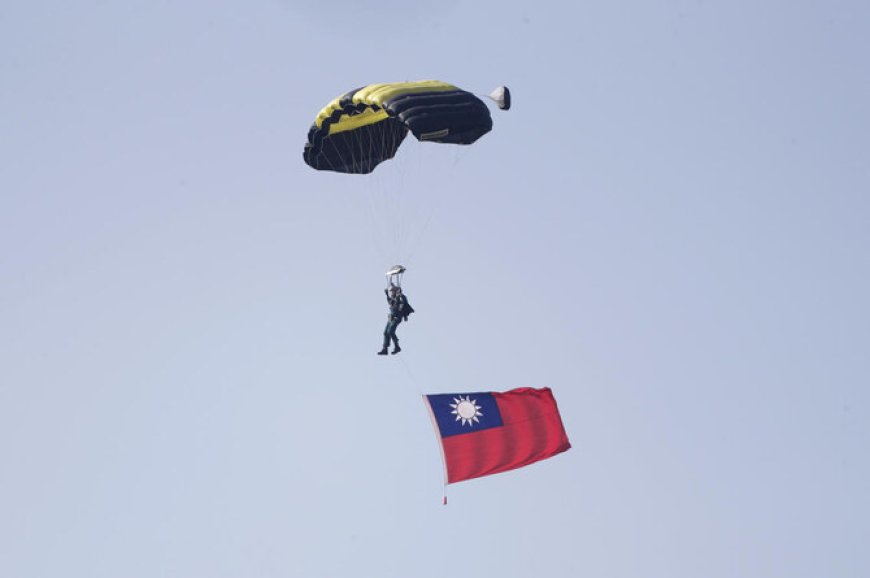Sanctions imposed by China on US defense companies: a symptom of a growing divide
China's announcement of penalties against seven firms on Friday in response to US military aid to Taiwan and the recent passage of the US government's defense expenditure bill marks still another indication of growing tensions. The action highlights Beijing's mounting annoyance with Washington's consistent support of Taiwan and the more aggressive US-China relationship tone.

China's announcement of penalties against seven firms on Friday in response to US military aid to Taiwan and the recent passage of the US government's defense expenditure bill marks still another indication of growing tensions. The action highlights Beijing's mounting annoyance with Washington's consistent support of Taiwan and the more aggressive US-China relationship tone.
From defense behemoths like Raytheon Canada and Raytheon Australia to less-known enterprises like Insitu Inc. and Aerkomm Inc., the approved companies—range in value—will have frozen assets in China and are not allowed to engage any business activity with Chinese organizations. Though symbolically strong, these actions are unlikely to destroy the companies since they hardly deal with China and so reinforce Beijing's message of resistance to what it believes to be US intervention in its "internal affairs."
This most recent news followed US President Joe Biden's approval of military sales totaling $295 million and $571 million in military aid to Taiwan. Boosting expenditure to $895 billion, the US defense bill distributes large resources to fight China's influence and has clauses reflecting military help given to Ukraine. Such actions not only strengthen Taiwan's defenses but also confirm America's long-term plan of reducing China's regional aspirations.
According to Beijing, these acts directly challenge national sovereignty. China sees US military support to the self-governing island as a red line and has long considered Taiwan as an indivisible part of its territory. Declared statements from the Chinese Foreign Ministry attacked the US for breaching bilateral accords, therefore compromising China's territorial integrity and generating instability in the Taiwan Strait.
Beijing's demonstrations, however, seem inevitable since its sanctions hardly show any real effect. American defense companies have little interaction with Chinese markets, hence such policies have little effect on the economy. But the penalties are more about Beijing's preparedness to intensify its opposition to US policies than they are about economic leverage.
Furthermore targeted toward a home audience is China's discourse. The government tries to mobilize nationalist feeling by presenting the US as a belligerent state bent on undercutting China's ascent as its economic growth slows and domestic tensions intensify. Speaking for China's Defense Ministry, Zhang Xiaogang attacked the US for its "belligerent character" and "obsession with hegemony," alleging that higher military expenditure reflected an aggressive, expansionist intent.
Taiwan stays caught in the crossfire meantime. The island reported Chinese military movements earlier this month, including naval operations mimicking a blockade, a sobering reminder of the delicate balance in the area. Although the government of Taiwan denounced these acts as destabilizing, they draw attention to the ongoing threat Beijing's military posture causes.
With Taiwan as the center of their competition, this geopolitical tug-of- war exposes a growing gulf in US-China ties. Supporting Taiwan for Washington is about preserving democratic principles and keeping a strategic presence in the Indo-Pacific. For Beijing, though, it poses an existential threat to its territory claims and national identity.
This stalemate has wider consequences than only those pertaining to Taiwan. The US defense bill's increased ban on Chinese goods in military purchase and its establishment of military funding tailored to Taiwan point to a long-term change in US attitude toward China. Emphasizing containment and rivalry, this combative approach haz similarities with Cold War-era methods.
Still, the issue of sustainability or efficacy of this strategy begs questions. Critics contend that while the US and its allies present their activities as a defense of democracy and international order, such tactics run the risk of deepening world divisions and hastening an alarming arms race. Though usually presented as defensive, Beijing's measures similarly aggravate tensions and lower chances for diplomatic settlement.













































